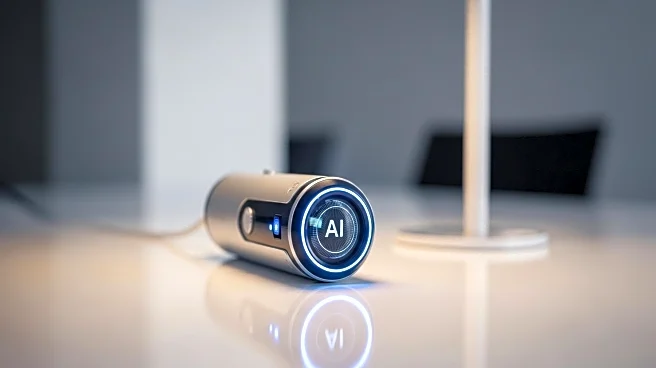What's Happening?
The Federal Trade Commission (FTC) has reached a settlement with Workado, an Arizona-based company, over allegations that it exaggerated the capabilities of its AI content detector tool. The FTC's investigation revealed that Workado claimed its tool could accurately detect AI-generated content with a 98% success rate, a claim that was found to be misleading. The AI model used by Workado was sourced from Hugging Face, an open-source repository, and was only trained on academic content, limiting its effectiveness in detecting AI-generated text from other sources. The FTC's consent order requires Workado to retract its claims and notify its customers, ensuring that any future representations about the tool's effectiveness are backed by reliable scientific evidence.
Why It's Important?
This settlement underscores the importance of transparency and accuracy in the AI industry, particularly as AI tools become more integrated into various sectors. The FTC's action highlights the need for companies to provide evidence-based claims about their products, protecting consumers from potentially misleading information. The case also illustrates the challenges in developing reliable AI detection tools, as the technology behind AI-generated content evolves rapidly. This has implications for industries relying on AI detection for security, content verification, and other applications, emphasizing the need for ongoing updates and scientific validation to maintain effectiveness.
What's Next?
Workado is required to comply with the FTC's order by securely storing all test data and documentation for future review and submitting to ongoing government compliance monitoring. The company must also contact its customers with an FTC-drafted letter acknowledging the settlement and the cessation of its previous claims. This case may prompt other companies in the AI detection field to reassess their claims and ensure they are supported by robust evidence. The FTC's actions could lead to increased scrutiny and regulation in the AI industry, encouraging more rigorous testing and validation processes.
Beyond the Headlines
The settlement with Workado highlights the broader issue of accountability in AI technology development. As AI tools become more prevalent, the ethical responsibility of companies to provide accurate information becomes crucial. This case may influence future regulatory frameworks, pushing for higher standards in AI product claims and consumer protection. It also raises questions about the balance between innovation and regulation, as companies navigate the complexities of AI technology while ensuring compliance with legal and ethical standards.









